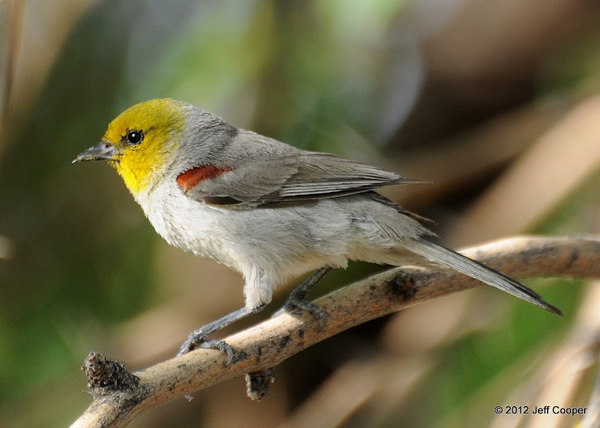|
Utah Bird Profile |
|||||
|
Name Roots: (L. aurum, "gold"; parus, "a titmouse" - flaviceps, "yellow head") |
|||||
| In Utah: |
 by Jeff Cooper |
||||
| Nesting, feeding, characteristic behaviors: |
Nests in a shrub or in a cactus at a height of 2-20 feet, in a spherical
nest. This species is not a cowbird host. During the breeding season, this
species is an insectivore: lower-canopy
gleaner. During the non-breeding seasons this species is an omnivore: lower-canopy forager.
|
||||
| Habitat: | Brushy desert habitats containing a
mixture of mesquite, acacia and rabbitbrush Breeds in Utah in low desert scrub and lowland riparian habitats. |
||||
| How to find: |
A quick perusal of field guide range maps indicates a trip
south to Washington County is necessary in order to add this bird to your list.
In my earlier years of birding I could always count on finding this species in
the Beaver Dam Wash in the extreme southwestern corner of Utah. But now, either
I am much more aware of it in other areas, or it has extended its range, it can
be found along the Virgin River and its tributaries, in Middleton (area between
St. George and Washington), golf courses, and other suitable brushy desert
habitats containing a mixture of mesquite, acacia and rabbitbrush. It is an
active bird, doesn’t stay in one place very long and is usually solitary.
~Merrill Webb |
||||
|
|
USGS Profile
(Geological Survey) |
US
Winter Range Map |
US
Summer Range Map | |
|||||
|
|||||
|
Abbreviations | References | Legend
|
|||||